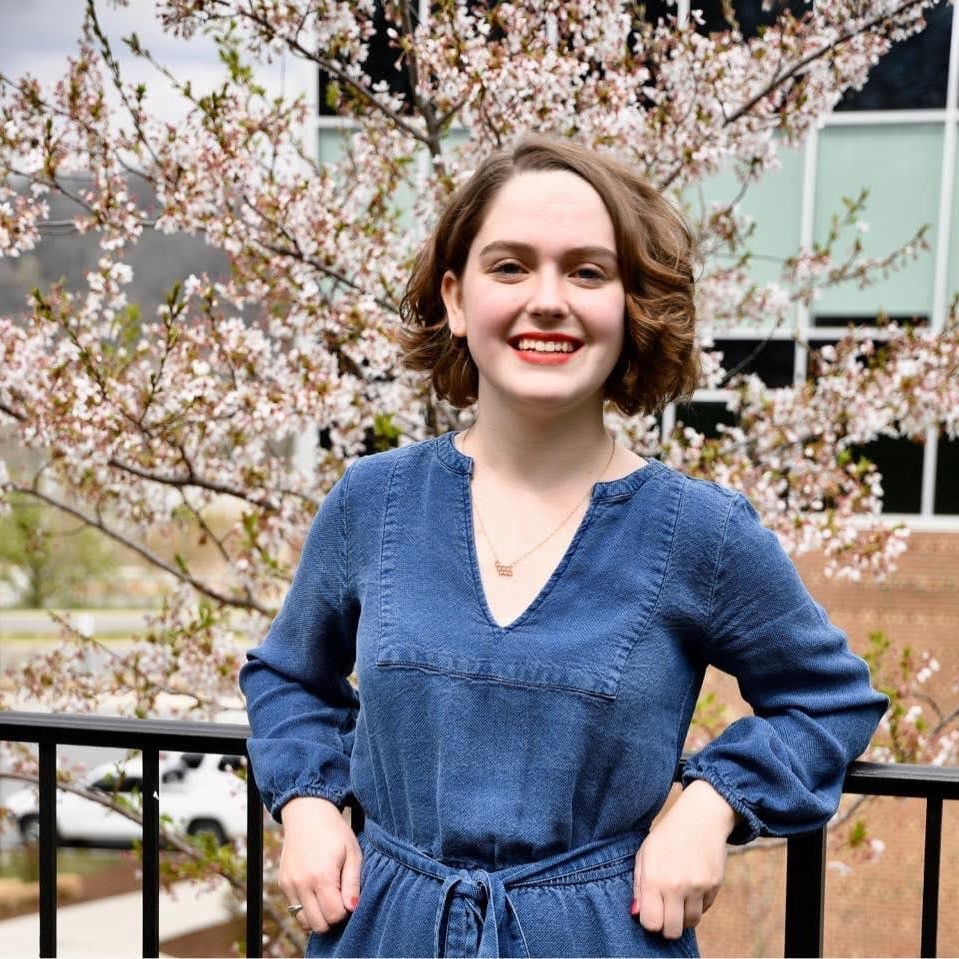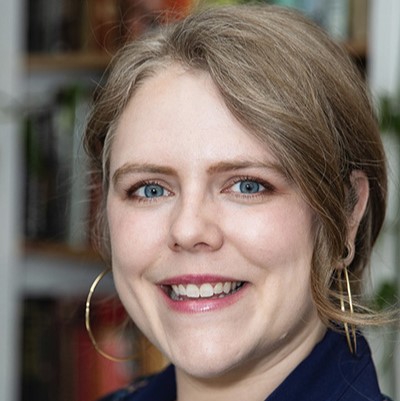PhD in English
Program Overview
TCU’s PhD in English Studies enables students to explore their interests and passions by placing literature and culture at the center of their graduate studies. We offer the opportunity to construct truly unique areas of specialization drawing on and combining our department strengths.
Students completing the PhD in English Studies at TCU build their areas of specialization by:
- taking courses across two years of preliminary study
- co-constructing, along with chosen faculty mentors, the focuses of their doctoral exams in two areas -- one broad field to prepare for teaching and research and one more focused area (often envisioned as preparing for the dissertation and subsequent scholarly projects)
- creating a dissertation to produce original research on a specialized topic, setting a foundation for the student’s future career
Jessica Mundy, English Ph.D. candidate

Mentoring
In our program, students receive sustained mentoring from the moment they are accepted into the program. This support includes while they search for positions in and beyond academe and continues as they pursue their chosen career path after graduation.
Tyler Jean Dukes, English Ph.D. candidate
 "The most valuable part of my graduate experience in TCU's Department of English has
been the quality of faculty-student mentoring relationships. Our advising faculty
continuously go above and beyond to make sure we have the writing feedback we need,
the research opportunities we want, and the personal support that suits us most."
"The most valuable part of my graduate experience in TCU's Department of English has
been the quality of faculty-student mentoring relationships. Our advising faculty
continuously go above and beyond to make sure we have the writing feedback we need,
the research opportunities we want, and the personal support that suits us most."
Funding
Our PhD students in English Studies are fully funded (five years for students entering with an MA, six for students entering with a BA) through teaching positions, department research assistantships, and/or university fellowships.
Location
TCU’s location in the Dallas-Fort Worth metroplex allows students to have learning experiences in nearby world-class museums and archives and to engage with a diverse range of communities.
Coursework
In developing interest areas through their initial course work, students may choose offerings in:
- American, British, and global/transnational studies;
- Studies based in genre, historical period, theoretical approach or social issue;
- Composition and rhetoric;
- Race and ethnic studies, including courses exploring Asian American, Black, Latinx, and Indigenous studies
- Gender and sexuality studies, including areas such as girls’ studies and gendered literacies
- methodology-oriented seminars, in-course experiential learning, and praxis in archival studies, public humanities, community-engaged learning and digital humanities
Da-Shiva Francois, English Ph.D. candidate
 "As a Ph.D. student in literature, I appreciate the high level of expertise each professor
brings to the classroom and their innovative use of multimodal assignments."
"As a Ph.D. student in literature, I appreciate the high level of expertise each professor
brings to the classroom and their innovative use of multimodal assignments."
Interdisciplinary Study
Students are able to develop strong interdisciplinary ties to other departments, programs, and centers at TCU, including the Center for Digital Expression, Comparative Race and Ethnic Studies, and Women and Gender Studies (with graduate certificates available in the latter two).
Pedagogy Training
A signal feature of our program is our robust teacher preparation. Students graduating with a PhD in English Studies from TCU are trained and experienced teachers of composition and literature courses. Students take a special three-hour course, Teaching College Composition (TCC) as they teach first-year and second-year writing (one course per semester).*
*Teaching College Composition (3 hours) is a required course unless a student has previously completed equivalent graduate level coursework. The Director of Graduate Studies together with the Director of Composition will determine if a student's previous coursework is equivalent.
As they progress through the program, doctoral students’ opportunities to teach in the department expand to include introductory literature courses, which may be framed to focus on their own interest areas. Additionally, students complete a Literature Pedagogy course or an individualized Pedagogical Directed Study in their field of specialization, with a faculty mentor’s undergraduate course forming a laboratory for active pedagogical learning.
Qualifying Examinations
When constructing their individualized exam reading plans, students choose a two-member exam committee of faculty to collaboratively prepare their field and focus reading lists. Each exam may take the form of traditional timed essay writing (such as a 48-hour synthesis exercise) or, in consultation with the committee, a portfolio of original scholarly or pedagogical writing.
Professionalization Experiences
Students may gain valuable experience working as graduate research assistants, including working with one of the department’s three endowed chair faculty; as consultants in the Center for Digital Expression; and as graduate assistants in academic affairs units across campus (with competitive applications necessary for these special opportunities).
Dissertations
The dissertations of English Studies doctoral students—supported by a four-member faculty team—feature innovative research and topics that display the range of specializations our program nurtures. See a few examples below.
- Aesthetic Cartography in Early Modern England by Shelby Oubre
- Reparative Genre: Disability and Girlhood in Young Adult Literature by Saffyre Falkenberg
- Uppers and Downers of Empire: A Transgeographical Study of Opium, Tea, and Sugar in the Long Nineteenth Century by Sanjana Chowdhury Cohn
- Dissipating in the sublime: recovering our mattered vitality in the modern environmental movement, American ski culture, and the psychedelic counterculture for a posthuman ethic by Katherine Elaine Lysinger
- Storytelling and user experience design: How stories shape design and how design shapes everything by Colin Robins
- Occupied joy: a practice of resistance, survival, and healing through the lens of Black and Palestinian liberation by Ruba H. Akkad
- Gothic fanaticism: Christianity, power, and discourse in nineteenth-century British gothic fiction by Alyssa Quinn Johnson
- Queer/ing intimacies: radical love and friendship in Chicana feminist literature by Meagan Solomon
- Stories of girls "at risk": a cultural and auto-ethnographic study by Diana Marie Bueno
- The influence of Shahrazad, the female “hakawati” of the Arabian Nights, on Victorian children’s literature by Dana Aicha Shaaban
- Tracing discourses of decolonial masculinities in African diasporic male writing of the long nineteenth century by Alonzo Washington Smith
- Blank spaces: global geographies of moral capitalism in the Anti-Slavery Reporter 1831-1833 by Sofia Prado Huggins
-
Unions in Crisis: British and American Marriage Anxiety and Nation-Building in Art and Novels, 1666-1847 by Rachel Emily Johnston
- Now Watson, the fair sex is your department: Gender and sexuality in post-2010 Sherlock Holmes adaptations by Annette Eileen Wren
To see additional examples of English Studies dissertations, visit this list on the TCU Library website, using filters on the right-hand side of the page to select a time frame for examples you would like to view.
Consult the Graduate Catalog and our Admissions page for more details about the program. For questions not covered in these pages, email Dr. David Colón, Director of Graduate Studies, at david.colon@tcu.edu.